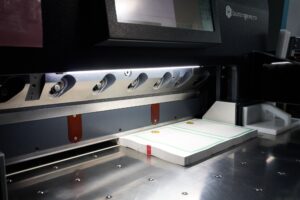Have you ever watched a massive piece of machinery hoisting heavy materials high above a construction site and wondered how it all comes together? Or perhaps you’ve been entrusted with a project where you need to arrange the lifting of large, awkward equipment, and you’re not quite sure where to start? Truck cranes can make tasks like these much easier, especially when they’re well-chosen and efficiently operated.
In this post, we’ll explore everything you need to know about hiring a crane in Brisbane, including the different types of truck cranes available, why they’re so useful, and what you need to check before signing any contract. We’ll also look at safety standards, potential pitfalls, and how to find reliable walkabout services or other crane-hire options that fit your specific requirements.
Whether you’re a project manager new to crane logistics or someone with a bit of experience looking to refine your approach, this blog post will highlight many tips for hiring the best truck cranes in Brisbane. By the end, you’ll be equipped with practical insights, a grasp of key regulations, and a clear strategy for lifting success.
1. Introduction
1.1 Overview of Hiring Truck Cranes in Brisbane
When it comes to heavy lifting, truck cranes play a pivotal role in Brisbane’s construction, industrial, and even residential projects. Their ability to move from site to site with ease makes them a popular choice. What’s more, hiring of cranes typically combines the crane itself with skilled operators, ensuring the job gets done safely and smoothly.
One of the main benefits of hiring a crane is the flexibility it provides. You don’t have to worry about permanent storage, upfront investment costs, or ongoing maintenance. Instead, you can book a crane for the exact tasks you need, allowing you to remain agile. This is especially true in a bustling city like Brisbane, where space is limited and project scopes can vary widely.
1.2 Why Strategic Crane Hire Matters for Your Project
Choosing the right crane sets the tone for the entire job. It affects your budget, your timeline, and your team’s safety. Making sure you hire the correct equipment can help avoid overworked or underused machinery, saving both time and money. Plus, when your crane hire strategy lines up with relevant safety standards, you reduce risks and protect your reputation within Brisbane’s construction community.
When you strategically plan the process of hiring a crane, you can reduce downtime and tackle unexpected issues earlier. By having clear project goals, you’ll be able to narrow your search and select a crane that’s well suited to your load requirements and site conditions. This well-thought-out approach ultimately yields better control over resources, helping projects stay on schedule and within budget.
2. Understanding the Basics of Truck Cranes
2.1 What Makes Truck Cranes Ideal for Lifting in Brisbane?
Truck cranes are built to be versatile, mobile, and strong. In a city where construction often happens in tight areas, these features are crucial. Because they’re mounted on a truck chassis, truck cranes can travel on public roads between sites. This mobility is a huge advantage over stationary cranes, which are confined to one spot and need more complex set-up.
Another reason they’re so popular in Brisbane is that many local projects require heavy lifting over short timeframes. Truck cranes can be called out for a day or two, quickly set up, and then move on to the next site. This can be particularly appealing when deadlines are strict. If you’re grappling with limited space and must manoeuvre your crane without blocking too much traffic, a truck crane offers a practical, stress-free solution.
Their telescopic booms also provide significant lifting heights and capacities, which is handy when dealing with the tall infrastructure found across Brisbane. Whether you’re lifting roofing materials onto a high-rise or shifting building supplies on congested city roads, truck cranes can handle a range of tasks.
2.2 Types of Cranes: Truck Cranes vs Other Mobile Alternatives
While truck cranes are excellent for many lifting jobs, there are other mobile crane options worth considering. For instance, all-terrain cranes are engineered to move comfortably on both city roads and rougher surfaces. Rough terrain cranes are another choice if your project is located on a site without smooth roads. Mobile tower cranes, on the other hand, combine the benefits of a tower crane with the mobility of a vehicle, although they can be more expensive to hire.
These alternatives may be more suitable if you’re dealing with unusual terrains or particularly large lifts that truck cranes can’t accommodate. However, for most city-centre or suburban Brisbane projects, a standard truck crane is often enough.
Before you settle on a specific model, think about the distance to your site, the estimated load, and whether you might need additional support equipment. Discussing your needs with industry experts can help you compare the available options in more depth.
2.3 “How Do I Know Which Crane Suits My Project?”
Selecting the right crane involves matching its capacities and features to your unique project. Consider the weight of your load, how high you need to lift it, and the available space on-site. For example, a project lifting heavy steel beams multiple storeys may need a crane with a stronger capacity and longer reach, while smaller tasks involving lighter materials might be fine with a mid-range truck crane.
It’s also wise to consult with truck crane hire professionals who know Brisbane’s geography and regulations. They can recommend a crane that fits your budget while also ensuring compliance with local permit requirements. Don’t hesitate to ask for multiple viewpoints to get a well-rounded perspective on what you truly need.
3. Key Considerations Before Hiring a Crane
3.1 Evaluating the Project Scope and Load Requirements
Before ringing up crane hire companies, clearly define the scope of your project. Estimate the maximum weight of the material you’ll be lifting and consider the type of site you’re working on. Having these details allows you to quickly identify potential crane options and keeps the conversations with providers more focused.
Are you working on a commercial build, a civil project, or a home renovation? Each scenario brings different requirements, and providers will want to know the kind of work environment you’ll be operating in. By planning carefully, you can make sure that the crane you hire won’t be overwhelmed by the demands of your project.
Finally, check whether your load needs special handling. Some items might be hazardous, require temperature control, or be extremely fragile. Letting your crane hire company know about these specifics early on helps them prepare the right equipment and strategies.
3.2 Checking Operator Credentials and Licensing
A crane might be powerful, but its performance largely depends on who’s behind the controls. When looking into hiring of cranes, it’s vital to verify that the provider’s operators hold the necessary licences to operate in Queensland. Make sure they’re familiar with Australian safety standards and have local knowledge to handle Brisbane’s unique conditions.
Don’t be shy about asking for details of their training and past jobs. A reputable crane hire company should be more than happy to share references and discuss qualifications. Some operators also hold extra certifications or areas of expertise, such as rigging or advanced safety procedures. If your job demands these special skills, it’s best to know about them early on.
3.3 Setting a Realistic Budget: “What Factors Influence the Cost of Hiring a Crane?”
Cost plays a big part in deciding which crane services you’ll use. Rates vary based on factors like the type of crane, how long you need it, and any additional crew required. Delivery to your site, insurance cover, and potential overtime charges can also boost the total. Aside from hiring the crane, think about extra costs such as permit fees if you need to position the crane on public roads in Brisbane.
To keep costs in check, it’s often wise to gather quotes from a few providers. This approach helps you understand the standard market rates and figure out which crane solutions and packages meet your needs. Resist the temptation to prioritise the cheapest option right away. Instead, weigh up factors like reliability, operator expertise, safety standards, and inclusions in the hire package.
4. Conclusion and Final Tips
4.1 Reviewing Key Points for Hiring a Crane in Brisbane
Hiring the right truck crane comes down to matching your load requirements, site constraints, and project goals. It’s absolutely key to choose a reliable provider who knows Brisbane’s guidelines and can provide the correct permits. A thorough approach, complete with walkabout services if needed, sets you up for a safe and productive lift.
4.2 Making the Most of Walkabout Services and Hiring of Cranes
Walkabout services can help you map out an efficient plan and spot potential issues in advance. Ultimately, it makes your lifting process more seamless and reduces last-minute scrambling. When combined with a capable crane operator, you’ll be well positioned to complete your project under safe, controlled conditions.
4.3 “What Are the Next Steps if I’m Ready to Hire a Crane?”
Start researching providers who can deliver the type of crane and operator expertise you need. Talk to them about your project’s demands, including load weights, lifting heights, and site conditions. From there, gather multiple quotes, verify credentials, and read contracts carefully. Once everything is in place, finalise your insurance, schedule the lift, and watch your project move forward with confidence.
Summing up, the process of hiring a crane in Brisbane might seem daunting at first. But with the right approach—covering details like capacity, operator licensing, walkabout services, and permit requirements—you’ll be able to navigate the city’s unique challenges. Above all, remember that safety and clear communication are the keys to a successful lift. By staying proactive, you’ll help your project conclude on time and on budget, supported by a capable, well-coordinated crane team.



